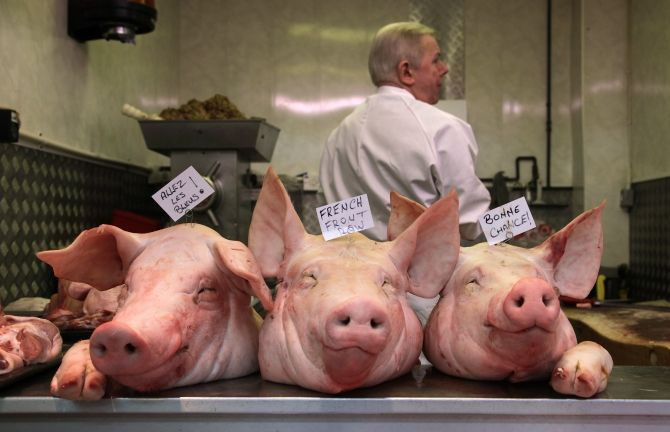The Future of Food: 3-D Printed Meat?

Meat has been a problem for us lately. Congressman Louise Slaughter and her staff put together a report that linked the use of antibacterial products and hormones in livestock with the rise of "superbugs," or deadly drug-resistant bacteria. Researchers at the University of Manchester have stated recently that the cultivation of livestock is a major culprit of global warming.
Many companies have stepped up to try to do something to reconcile that demand with the global consequences, trying to carve with a niche for meat. Beyond Meat, for example, makes fake chicken that apparently has the taste, texture, and feel of real chicken – not meant to apply to vegans or vegetarians, but to meat-eaters. (Unfortunately, I have not had the chance to taste it yet; the products are only sold right now at Whole Foods Stores in Northern California, and our offices are on the East Coast.) And another company has recently thrown their own hat in the ring, with a donation from billionaire Peter Thiel's foundation. The company, called Modern Meadow, wants to make 3-D printed meat.
The idea of 3-D printed meat certainly has been seen in science fiction before. A Star Trek episode featured synthetic meatloaf, and Orion's Arm, the multi-authored online science fiction universe, features "prillets," which are animals printed without any bones. But Modern Meadow seeks to make those visions into a reality.
Modern Meadows' website is currently not online, but a USDA small business grant submitted by their organization says that they would use bio-inks to create a small edible piece of "porcine" tissue that can be used for "sausages, patties, and nuggets."
The Thiel Foundation's Breakout Labs declined to say how much their grant to the organization was, but their representative Lindy Fishburne said that their grants ranged from $250,000 to $350,000.
As for who would buy 3-D printed meat? Modern Meadows also says in their USDA small business grant: "We expect it will first appeal to culinary early-adopter consumers and the segment of the vegetarian community that rejects meat for ethical reasons. With reduction in price, it can reach the masses with religious restrictions on meat consumption (people restricted to Hindu, Kosher, Halal diets) and finally populations with limited access to safe meat production."
What do you think? Would you give 3-D printed meat a try?
Published by Medicaldaily.com



























